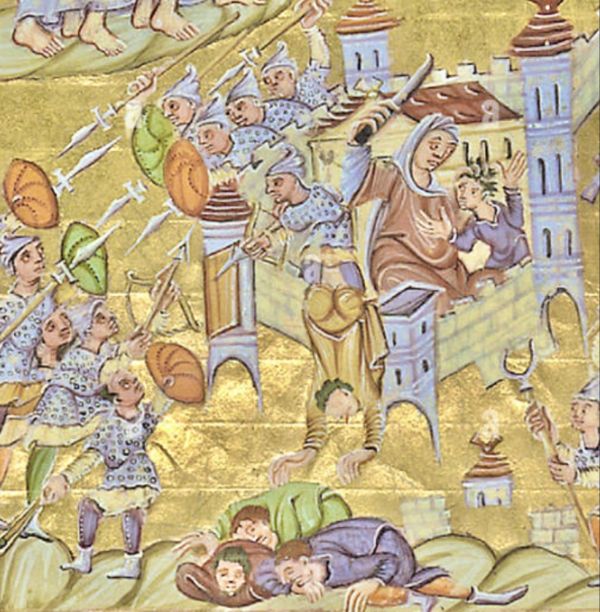Jesus shed tears over Jerusalem for its ungrateful choice of power.
Francis too, a disciple of the Lord, in the footsteps of the Word made flesh, as soon as he had finished his errands (indeed he would cut them off in a flash, so as not to be distracted by the things of God!) would retire, like Jesus, all alone, to pray, even at night.
Thomas of Celano, one of his most eloquent biographers, in the Sources, speaks thus about Francis' relationship with Christ.
This intimate union strengthened his faith, making him capable of going to God even on the great waters of life, amidst the storms of the world.
"He spent all his time in holy recollection, in order to imprint wisdom in his heart; he feared to turn back if he did not always make progress.
And if at times there were urgent visits from seculars or other matters, he would cut them off rather than finish them, to take refuge again in contemplation" (FF 681).
"When, on the other hand, she prayed in the woods and in solitary places, she filled the woods with groans, bathed the earth with tears, beat her breast with her hand; and there, almost as if taking advantage of a more intimate and reserved place, she often dialogued aloud with her Lord" (FF 682).
But Clare too, a seedling of the Seraphic Father Francis, was nourished by assiduous prayer and solitary contemplation to understand God's will and abandon herself to a solid faith.
Witness what he wrote in his third letter to his spiritual daughter, Agnes of Bohemia. Words charged with authentic 'Christian relationship'.
"Place your eyes before the mirror of eternity, place your soul in the splendour of glory, place your heart in Him who is the figure of the divine substance, and be transformed entirely, through contemplation, into the image of the divinity of Him" (FF 2888).
The Poor of Assisi have made "being with God" the condition for not fearing the adversities encountered on their journey; walking, by Grace, on the "great waters".
Thus, thanks to their eloquent example, many souls abandoned the spirit of confrontation and overpowering, turning to a life of conciliation and fraternal Peace.
«Hadst thou known in this day also that which is for peace! But now it has been hidden from your eyes» (Lk 19:42)
Thursday, 33rd wk. in O.T. (Lk 19:41-44)












